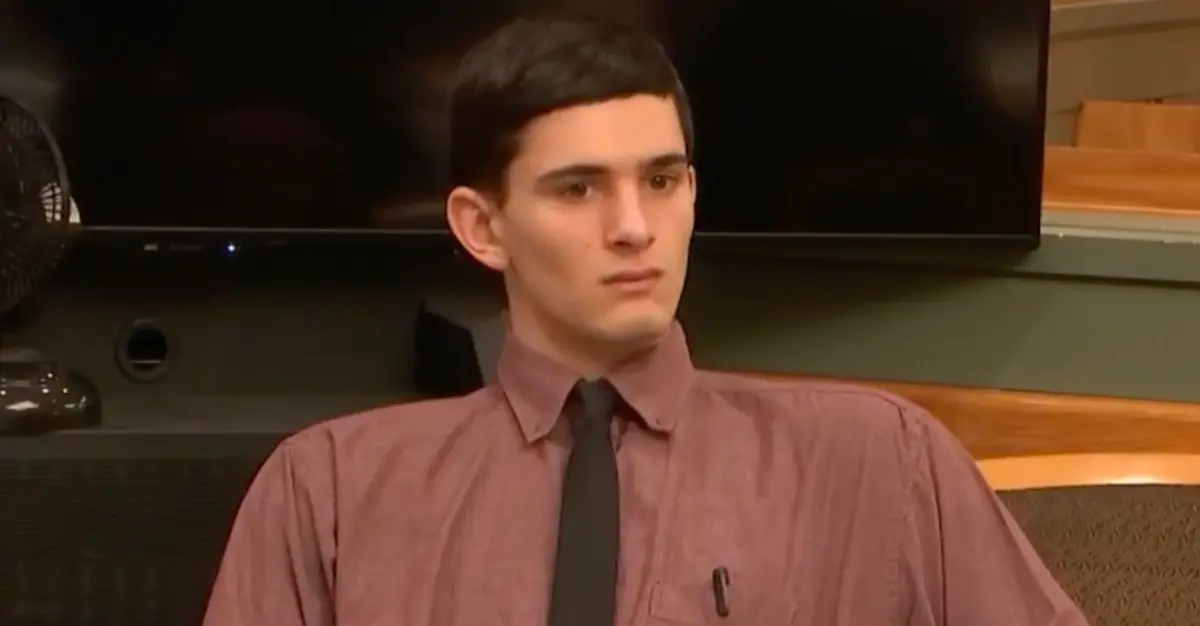Zachary Latham gained national attention in 2020 after a tragic incident that sparked debates on self-defense, justice, and neighborhood disputes. His case became widely known not only because of the crime itself but also because of the way it was handled in the courtroom. This article delves into the life of Zachary Latham, the events surrounding the incident, the legal proceedings, and the lessons learned from this case.
Who is Zachary Latham?
Zachary Latham is a young man from New Jersey whose name became synonymous with a tragic series of events. Born and raised in the state, Latham was initially not a figure known to the public until an altercation with his neighbors took a deadly turn. On May 4, 2020, Latham was involved in a violent confrontation with his neighbors, the Salazar family, which resulted in the death of the family patriarch, 51-year-old Felipe Salazar. This incident led to Latham’s arrest and a lengthy legal battle that would capture the attention of the nation.
The Incident: A Dispute that Escalated
The conflict that led to the death of Felipe Salazar began as a neighborhood dispute. Latham, who had been living in the area for a short time, became involved in an ongoing feud with the Salazar family over various issues. It is reported that Latham had previously posted videos on social media about the tensions with his neighbors, which included confrontations over property boundaries and noise complaints.
On the day of the incident, Latham had been in a verbal altercation with the Salazar family. According to police reports, the situation escalated when Latham recorded a video of the confrontation, and Felipe Salazar, along with his son, attempted to confront him. Latham then claims he acted in self-defense when the situation turned physical.
However, the Salazar family’s version of events is different, stating that Latham was the aggressor and had instigated the altercation by provoking them with his behavior. The confrontation ultimately escalated to the point where Latham stabbed Felipe Salazar, resulting in the latter’s death.
Zachary Latham’s Legal Case
The aftermath of Felipe Salazar’s death saw Zachary Latham facing serious charges, including manslaughter and possession of a weapon for an unlawful purpose. His case became a topic of national discussion due to the legal complexities surrounding self-defense claims and the role of social media in the escalation of conflicts.
Latham’s defense team argued that he had acted out of fear for his life, citing the Salazar family’s attempt to physically confront him. They contended that the presence of a knife during the altercation was a necessary means of protection. However, the prosecution argued that Latham’s actions were premeditated and not in line with self-defense laws. They pointed out that the video Latham had recorded before the incident showed him taunting and provoking the Salazar family, which undermined his claims of being threatened.
Trial Outcome and Public Reaction
Zachary Latham’s trial began in 2021 and quickly became a media sensation. The combination of social media evidence, witness testimonies, and conflicting narratives from the defense and prosecution made it a case that attracted significant attention. After weeks of testimony, Latham was convicted of manslaughter and other related charges, leading to a prison sentence.
The case raised several important questions about self-defense laws, the influence of social media on public perception, and how neighborhood disputes can escalate into deadly violence. The public reaction to the verdict was mixed, with some expressing sympathy for Latham, believing he had been forced into a corner, while others felt that justice had been served for the Salazar family.
Lessons from the Zachary Latham Case
The tragic incident involving Zachary Latham and the Salazar family serves as a stark reminder of the potential consequences of unresolved conflicts and the role of social media in inflaming tensions. There are several key lessons that can be drawn from this case:
1. The Importance of De-Escalation
One of the main takeaways from the Zachary Latham case is the importance of de-escalating conflicts before they turn violent. In many cases, tensions between neighbors or individuals can be resolved through communication, compromise, or even professional mediation. Escalating confrontations can lead to dangerous outcomes, as seen in this tragic case.
2. Social Media’s Impact on Real-Life Conflicts
Latham’s social media posts documenting and provoking his neighbors significantly contributed to escalating tensions and ultimately the deadly confrontation. Social media platforms can amplify conflicts and lead to the public sharing of sensitive or inflammatory content. Individuals must use social media responsibly, as it can significantly influence real-life relationships, conflicts, and overall social dynamics.
3. Understanding Self-Defense Laws
The Zachary Latham case also highlights the complexity of self-defense laws. While individuals are entitled to protect themselves, the boundaries between self-defense and aggression are often murky. The jury had to decide if Latham’s actions were true self-defense or excessive force beyond necessary protection.
FAQs
Q: What led to the incident involving Zachary Latham?
A: The incident was a result of an ongoing neighborhood dispute between Zachary Latham and the Salazar family. The situation escalated when verbal altercations turned physical, leading to Latham stabbing Felipe Salazar.
Q: Was Zachary Latham convicted of murder?
A: No, Zachary Latham was convicted of manslaughter after the jury determined that his actions were not justified as self-defense. He was also convicted on other related charges.
Q: What role did social media play in the case?
A: Zachary Latham shared videos of his confrontations with the Salazar family, making social media a key element in the case. These videos were used as evidence during the trial and raised questions about whether Latham was provoking the situation.
Q: What are the key lessons from the Zachary Latham case?
A: The case highlights conflict de-escalation, social media’s role in real-life disputes, and the challenging nature of self-defense laws.
Q: What was the outcome of the trial?
A: Zachary Latham was convicted of manslaughter and sentenced to prison for the death of Felipe Salazar. The trial attracted national attention and sparked discussions about legal and social issues.
Conclusion
The story of Zachary Latham is a tragic reminder of how small disputes can spiral into life-altering events. The case sparked key debates on self-defense laws, social media’s influence, and the dangers of escalating personal conflicts. The trial’s conclusion highlights lasting lessons, urging peaceful conflict resolution to prevent tragic outcomes like the one involving Zachary Latham.
Though Zachary Latham’s case is closed legally, it remains a public example of conflict escalation and the value of peace.

